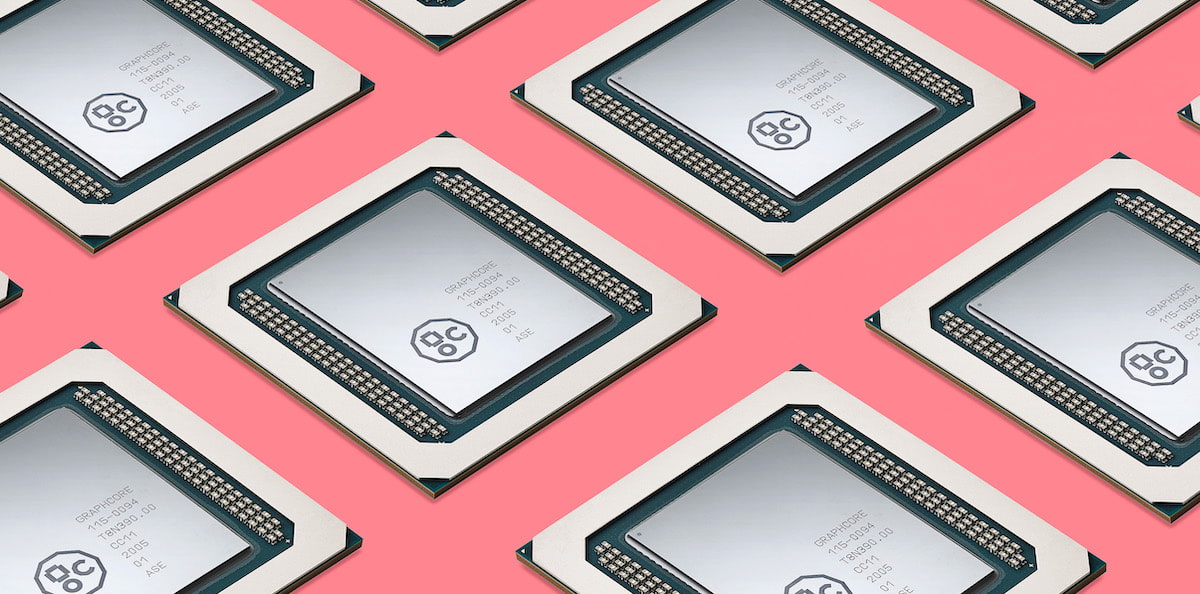In the fierce competition of the artificial intelligence (AI) chip industry, many startups have set NVIDIA as their benchmark for surpassing, constantly comparing their product performance with NVIDIA's GPUs. However, despite these companies' continuous technological breakthroughs, NVIDIA still holds a dominant position in the market. The British AI chip company Graphcore, once an ambitious unicorn, is now facing the possibility of being acquired.

The Rise and Challenges of Graphcore
Since its establishment in 2016, Graphcore has been renowned for its innovative IPU processor architecture, which utilizes TSMC's WoW 3D stacking technology. This processor provides powerful computational power and excellent energy efficiency, making it a competitor to NVIDIA's A100 GPU. Graphcore has received investments from giants such as Microsoft, Dell, and Samsung, and its valuation once reached as high as $2.8 billion in 2020.
However, starting from 2022, Graphcore has encountered severe market challenges. Affected by the macroeconomic environment, Graphcore's revenue for the fiscal year 2022 plummeted to $2.715 million, a 46% decrease from $5.044 million in 2021. This was mainly due to a reduction in product sales revenue, particularly a decrease in orders from a major customer in China. To cope with operational difficulties, Graphcore had to lay off staff, reducing its workforce from 650 to 494, and closed its operations in Norway, Japan, and South Korea. Despite this, Graphcore initiated its cloud service business in 2022. Although the revenue was only $137,000, the company remains optimistic about the trend of cloud-based AI construction, believing it will help to expand the revenue scale.
Graphcore's Future: The Potential for Acquisition
The British government announced an investment of £1 billion to develop the domestic semiconductor industry, which brought market opportunities for the AI field. However, Graphcore did not benefit from this, as the project was specifically aimed at GPUs, not Graphcore's IPUs. This further exacerbated Graphcore's predicament.
According to Bloomberg, the Japanese investment giant SoftBank may have been in acquisition talks with Graphcore for several months, and these discussions may be nearing completion. SoftBank's emphasis on the British semiconductor market is evident, with its control over Arm, one of the UK's largest chip design companies. It is likely that SoftBank values Graphcore's AI chip development talent and experience more than its IPU products. SoftBank is accelerating its layout in the AI field, planning to raise $100 billion to build an AI chip company to compete with NVIDIA. This includes promoting Arm's development of AI chips and the intention to develop them into an independent business.
Conclusion
Graphcore's situation highlights the intense competition faced by AI chip startups, especially in the data center customer base. In the AI hardware market, the software ecosystem often determines the outcome of the competition more than performance indicators. Although Graphcore's IPUs are competitive in technology, they have not met market expectations in terms of acceptance. If SoftBank's acquisition is successful, Graphcore may be able to leverage SoftBank's resources and strategy to regain a foothold in the AI chip field.
Daily hot brand and product
Intel is a globally renowned semiconductor chip manufacturer with a wide range of products. Intel has ventured into various emerging technology sectors, including artificial intelligence, autonomous driving, and the Internet of Things (IoT), with a rich variety of products, especially holding an unshakable position in the field of programmable logic devices. Two high-performance programmable logic devices (FPGAs) from Intel's Altera brand demonstrate exceptional application potential across multiple domains.
● EP4CGX150DF27C7N: This BGA-packaged chip, with 393 I/O ports and 672 FBGA batch numbers, is equipped with an abundance of logic elements and memory blocks. It is highly suitable for high-performance computing and data processing applications in fields such as automotive electronics, security, industrial control, consumer electronics, communication devices, medical electronics, and aerospace.
● EP3C25U256C8N: Belonging to the Cyclone III series, it plays a crucial role in communication systems and industrial automation with its high flexibility and reconfigurability. This FPGA excels at handling digital signal processing tasks in high-speed serial communication links, including signal modulation, demodulation, and decoding, and also has broad applications in sensor data acquisition, machine vision, and image processing.
Website: www.conevoelec.com
Email: info@conevoelec.com









